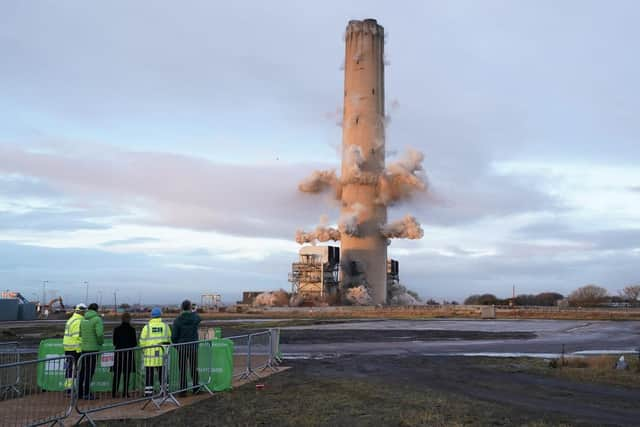Last chance saloon for the world as UN reports ‘file of shame’ on climate action
Presenting the latest report from the Intergovernmental Panel on Climate Change (IPCC), he said: “The jury has reached a verdict and it is damning.”
The report shows “a litany of broken climate promises” and stands as “a file of shame, cataloguing the empty pledges that are putting us on track towards an unlivable world”, he said.
Advertisement
Hide AdAdvertisement
Hide AdThe new report is the third instalment of the sixth assessment report, summing up the world's knowledge on climate change.


Despite the dire list of findings, it concludes it’s still possible to at least halve emissions by 2030 if we move very, very fast – but the window of opportunity is rapidly closing.
It suggests global emissions – which rose by record levels in 2021 – must stop climbing in the next couple of years, peaking no later than 2025, and then come down dramatically.
Failure will result in a carbon budget overshoot and warming way over the 2C danger limit.
The findings, signed off by 195 countries, spell out in no uncertain terms that major changes in our way of life must happen immediately if we’re even to have a sniff at restricting global temperature rise to 1.5C by the end of the century, as set out in the Paris Agreement, and holding back the worst consequences of climate change.
A substantial reduction in fossil fuel use – including a 95 per cent cut in coal by 2050 – will be required, along with widespread electrification, more renewables, improved energy-efficiency and use of alternative fuels such as hydrogen.
Farming, forestry and other land uses will have to make significant emissions cuts while also providing large-scale natural removal and storage of carbon dioxide – but should not be used to compensate for poor performance in other sectors.
Consumers will also need to cut energy demand by better insulating homes, move away from gas boilers and eat a more climate-friendly diet, including reducing meat.
Advertisement
Hide AdAdvertisement
Hide AdSince the planet is currently on track to warm by 2.4C, there is no more time for kicking the can down the road.
As UN Environment Programme chief executive Inger Andersen says, action must be taken “this year, not next year; this month, not next month; today, not tomorrow”.
A message from the Editor:
Thank you for reading this article. We’re more reliant on your support than ever as the shift in consumer habits brought about by coronavirus impacts our advertisers.
If you haven’t already, please consider supporting our trusted, fact-checked journalism by taking out a digital subscription.
Comments
Want to join the conversation? Please or to comment on this article.
